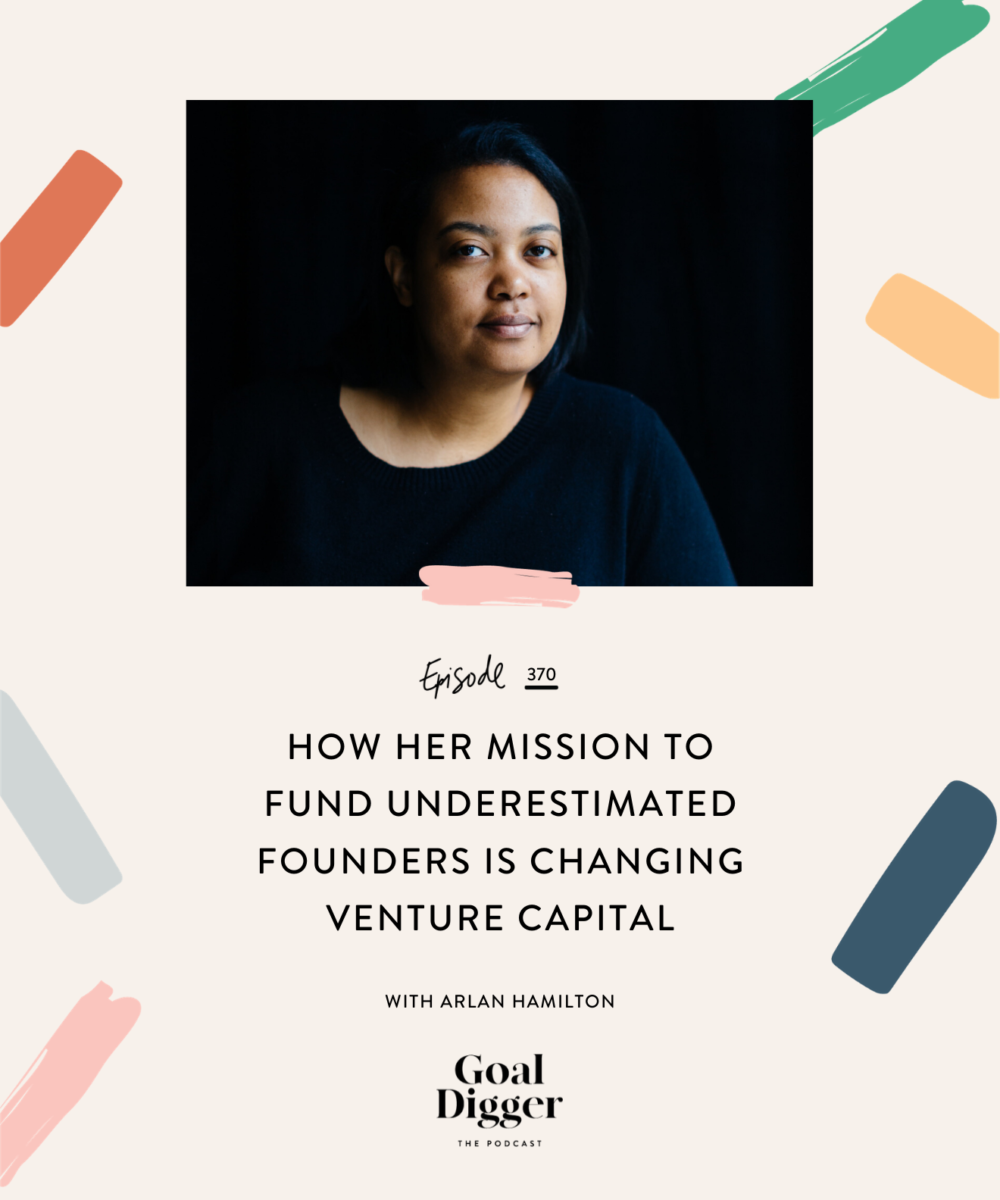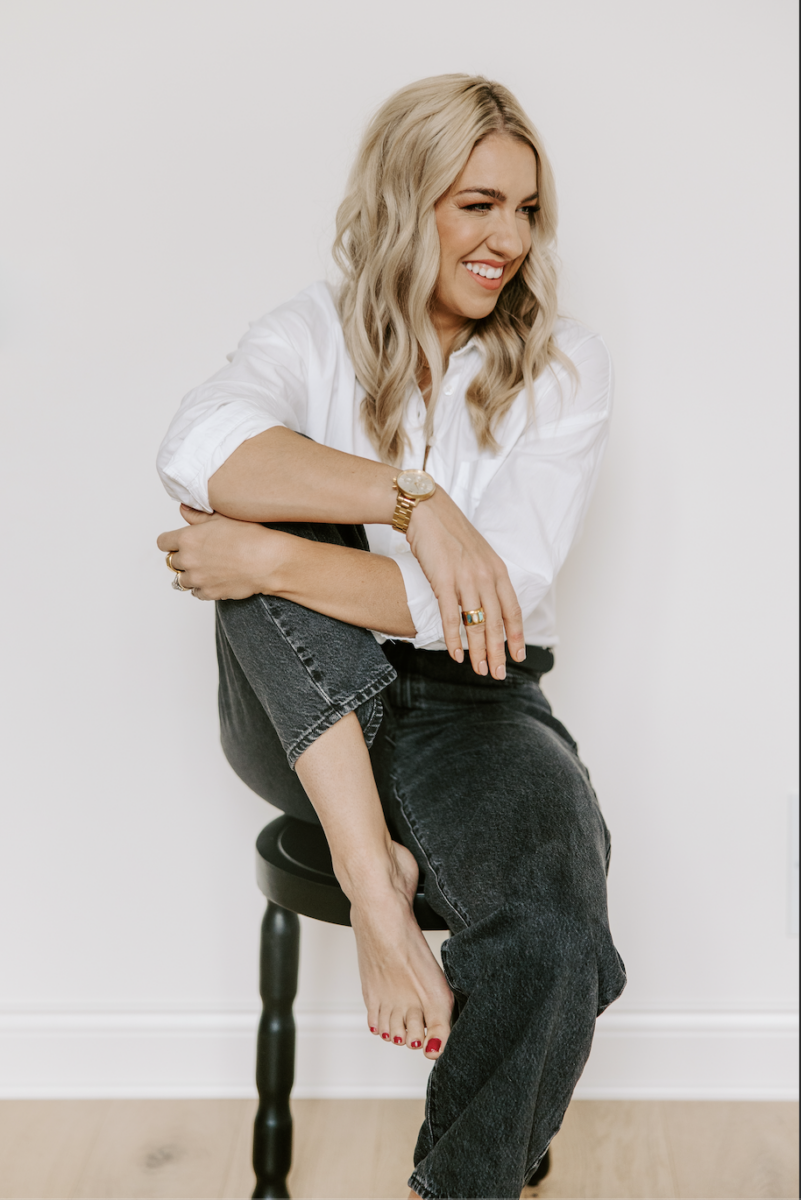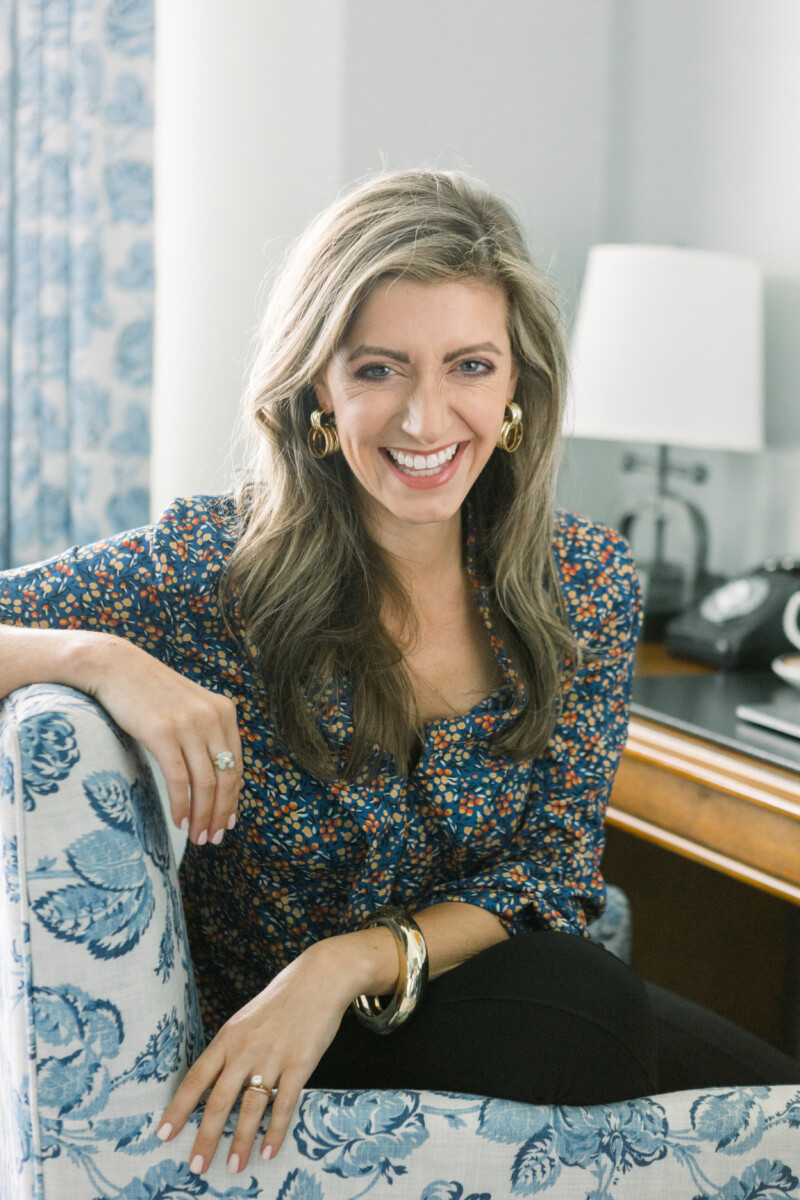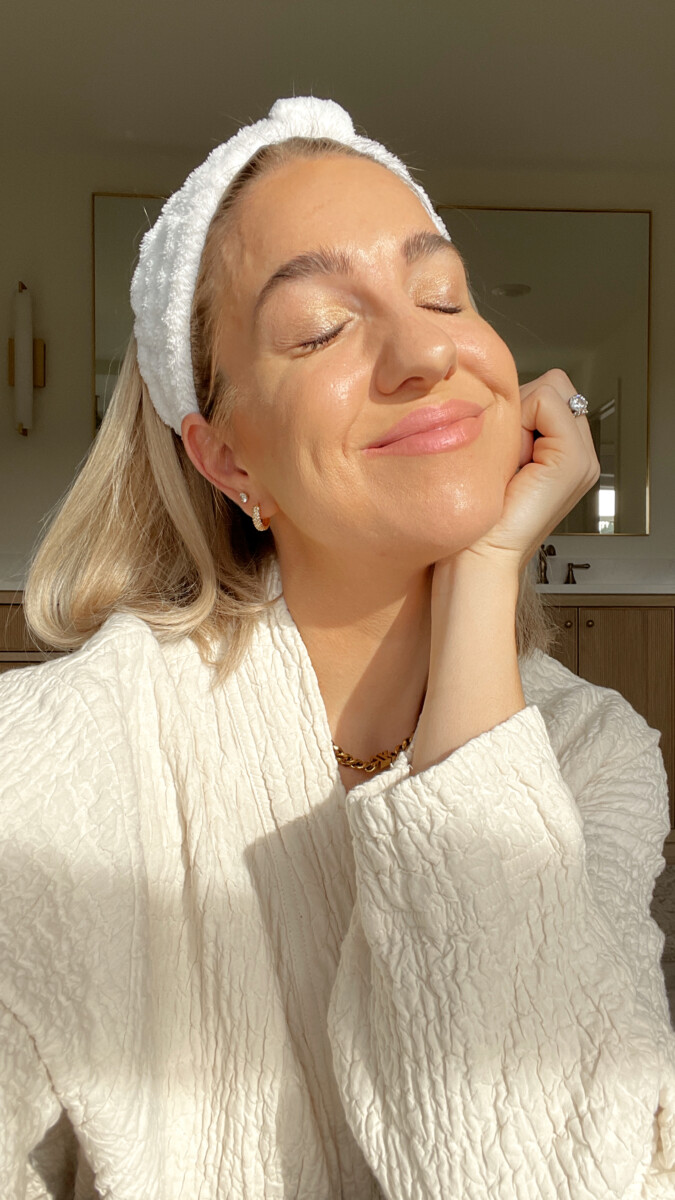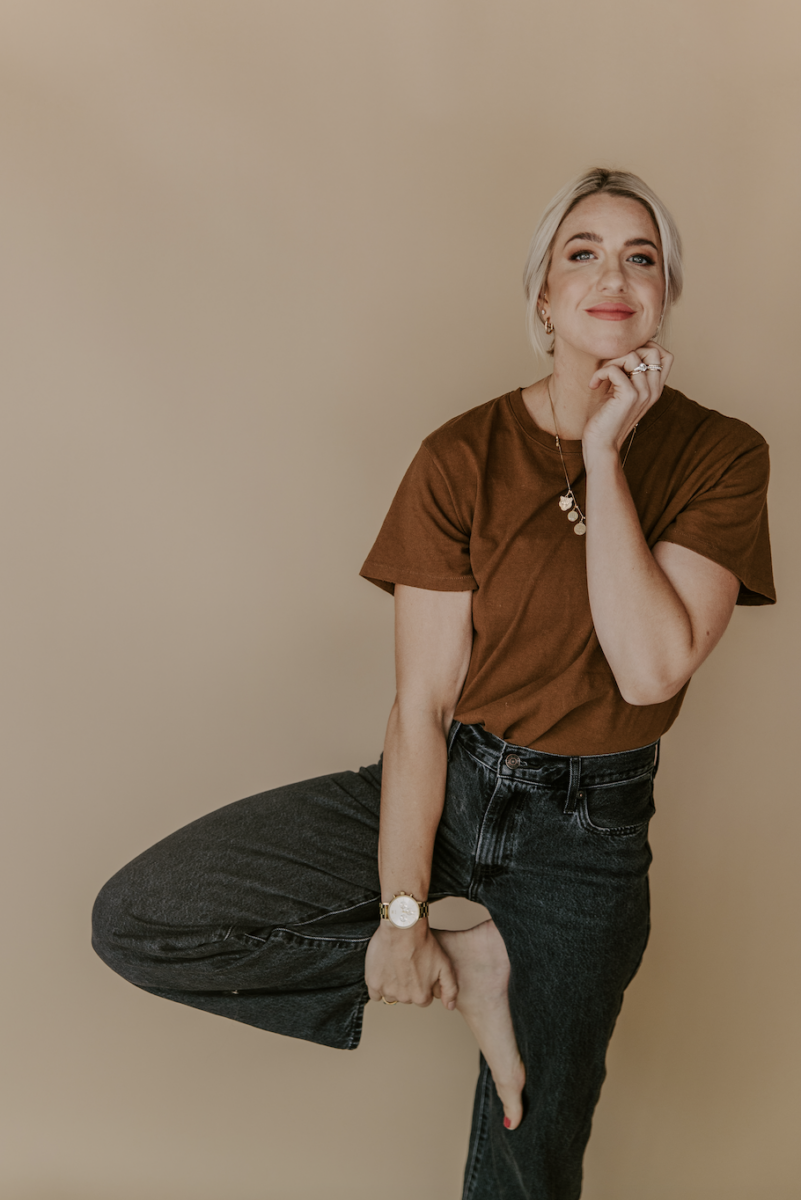Tune In: Apple Podcasts | Spotify | Stitcher
Arlan Hamilton is a champion for underestimated founders. With her company Backstage Capital, she has invested over $10 million in over 130 companies with underrepresented founders; those who identify as women, People of Color, or LGBTQ. Arlan herself identifies as all three, and she was sleeping on an airport floor when she knew she had to do something about the fact that no one in Venture Capital looked like her.
In this interview, Arlan digs into the catalyst moments that lead her to the world of Venture Capital, why she doesn’t believe in Imposter Syndrome, and what makes a strong pitch when it comes to raising capital for your company.
Press play right now and don’t forget to pick up Arlan’s new book, “It’s About Damn Time” at your local bookstore.
Where Her VC Story Began
Arlan never grew up wanting to become a venture capitalist. She had started a number of business ventures, including a music magazine that led her to the world of touring as a production manager with both indie artists and arena level artists. However, Arlan never really felt like she’d gotten her footing with money.
During her time on tour, she started hearing about people in the entertainment industry making investments. From Lady Gaga’s manager to Ashton Kutcher to Ellen DeGeneres, they were investing in Silicon Valley. The stories intrigued her, so she started to look into what it meant to invest in start-up companies.
While researching venture capital and the world of investing, she read a statistic that floored her — 90% of all venture capital goes to straight white men in the United States. And straight white men makeup 33% of the population in the US.
With that knowledge, Arlan knew that she would have trouble every step of the way in her journey to get investments in her company. She knew that People of Color, people who identify as women, and LGBTQ founders would be left out. “And it just didn’t make any sense to me that I only saw a few Black people writing checks. Or that I only saw a few Black people in the board rooms,” she explained.
Arlan continued, “I was honestly broke. I had no money, I was in debt, I had housing insecurity… And yet for some reason it was clear as day to me that I was going to start a fund and I was going to invest in 100 companies by 2020.”
“I know one-hundred percent that I won’t do it if I don’t try. But if I try there’s a percentage chance that maybe I can get there. If I shoot for the moon, maybe I’ll land in the middle, but that’s still something.”
Imposter Syndrome
So many people cite Imposter Syndrome as the main thing holding them back from doing what they want to do. With such a massive goal, and the potential barriers standing in her way to make a massive shift in the venture capital world, did Arlan ever face Imposter Syndrome? Does she still feel it today?
“For a lot of underrepresented people — women, People of Color, and more — we’ve been sold a bill of goods.
“I think Imposter Syndrome is almost a myth. Everybody has the right to be in certain rooms and rooms they want to be in,” Arlan began. She told the story of a fireside chat she once participated in, when the host asked the audience to raise their hands if they’d ever experienced Imposter Syndrome. Nearly every hand shot up, and nearly every person looked surprised at the result.
Arlan asked the crowd why they were so surprised by the number of hands in the air. One woman responded that she’d never considered that other people felt the same way she did, and was also feeling like an imposter in their high-ranking role.
“I think we have to reevaluate how we got to [where we are]. I don’t think you can compare yourself to other people because you will never know what they did or didn’t have to go through compared to you,” she said.
Her First Check
With her company Backstage Capital, Arlan invests in other people and their businesses. She heard years and years of no’s before getting her first check from a woman named Susan Kimberlin to invest in someone else. Since then, she has raised $10 million dollars to invest in 130 companies.
The mission of the company is to invest in people who identify as women, LGBTQ, and People of Color. Arlan loves to see what these young companies are doing, and investing in underestimated founders.
She said, “All of these founders that I’ve met over the past few years, a lot of them have done so much with so little. I wonder what would happen if you gave them a little bit more?”
Arlan flips the former investment models on their head. If a woman shows up to a pitch meeting a baby on her hip, the old school way of thinking might have considered that a liability. But for Arlan, it’s extra points. It proves that a woman can multitask and handle distractions. It shows she is dedicated to what she’s doing.
It’s About Damn Time
That’s the name of Arlan’s new book, and she joked, “It really felt like that as I was writing it.”
“I’d gone through so much, and so much of it I wanted to have it be for something,” Arlan reflected. “I wanted those harder times to mean something. And they mean something when someone else can read it and get something out of it.”
The book is half-memoir, half-business resources and tools. For Arlan, the book isn’t just about her, it’s about the reader and what you could use to grow in your own business and life.
Venture Capital 101
Arlan also teaches a course on raising capital for your company from scratch. One thing she sees over and over again after hearing pitches from over 6,000 companies, is that some companies don’t understand their competition, their numbers, or the market they’re in.
Regardless of the industry or type of product, Arlan said, “It’s important and imperative that you know more about it than I do.”
As you’re preparing a pitch, you need to be able to explain and express yourself to a potential investor who doesn’t have time to learn everything about your market. And if you can’t, “That’s a wonderful excuse to find a co-founder,” Arlan said.
Arlan advised that founders preparing pitches should be able to handle questions about their main competitors and point out how your company is different or what you do better. “What’s really a red light early on is if you say ‘I don’t know of them’ or ‘They’re not competition’ and you don’t have a reason,” Arlan said.
Her course focuses on those aspects of pitching and more. It teaches what you need to bring into the room with you. “The investor is not the all-knowing oracle of things — you have a lot to bring to the investor if you choose to even go for investment,” Arlan encouraged.
How She’s Feeling Right Now
It is Pride Month, the Black Lives Matter movement is in full focus, our nation and world is trying to gain footing after an economic downturn following the pandemic… How is Arlan feeling?
“I am allowing myself to feel everything,” she started. “In any given hour I feel destroyed, exhausted, but in that same hour I can laugh my butt off about something I saw or something my wife or friend said.”
“I’m allowing myself to feel joy, because I feel like that’s activism in itself,” Arlan continued. “I’ve said my success is my activism and the success I help to catalyze in others is my activism.”
Arlan has been pushing herself to do everything she can to participate, but she also takes breaks. She disappears into the simple things. “I think this is going to be a long haul of uncertainty and I want to have the mental and emotional stamina for it.”
More from this Episode
In this episode, Arlan talks about her mother as her greatest mentor, and the stories she shares about her mother’s grace and loving nature are so special to hear. Arlan also shares her decision-making process. What really tips the scales as she’s considering who to invest in, especially with the number of pitches she hears each week? Press play for all of this and more from Backstage Capital founder Arlan Hamilton.
Get your copy of “It’s About Damn Time” and learn more about Arlan here
